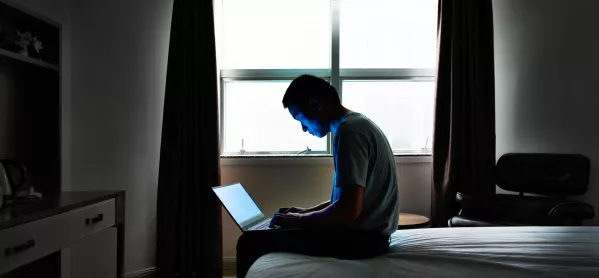Around 100,000 students do not have a suitable device to use for their studies or access to the internet, the Association of Colleges has revealed today.
The AoC also said more than two thirds (67 per cent) of colleges felt that students' lost learning was a concern.
Colleges were excluded from the government's funding for laptops for under-16s, and instead were told to use their bursary funds and apply for extra funding if required.
Need to know: Only half of hardship requests successful
News: Why oversubscribed sixth forms need capital funding now
More: Transfer unspent apprenticeship funds to colleges, say AoC
An exclusive Tes investigation in August found that 16 colleges asked for extra hardship funding from the DfE. In total, £886,847 was requested – however, only £413,303 was awarded, 54 per cent less than needed.
At the time, University and College Union general secretary Jo Grady said: “Students from less affluent households were hardest hit by lockdown and least likely to be able to access the equipment needed to continue their studies remotely. From free school meals to exam results, this looks like a government that has to be shamed into doing anything to help those who struggle the most. Staff in our overstretched colleges are doing all they can to support students, the minimum the government can do is meet requests from hardship funds.”
"The government must do more"
Today, the AoC is calling for a renewed support package for all disadvantaged students so that they can succeed this year.
Chief executive David Hughes said that without immediate support, there was a risk of "stunting the life chances of young people for years to come".
He said: “The legacy of lockdown must not be a generation of learners who have lost out because of digital poverty. Without immediate support for colleges to allow students to get the devices and access they need; we risk stunting the life chances of young people for years to come.
"Further education is the vehicle to better life chances and opportunities and future life chances, blended learning looks like a solid feature of that future digital poverty must not be a barrier. The government must do more to ensure that every young person can engage effectively with their learning online no matter their socioeconomic status.”





